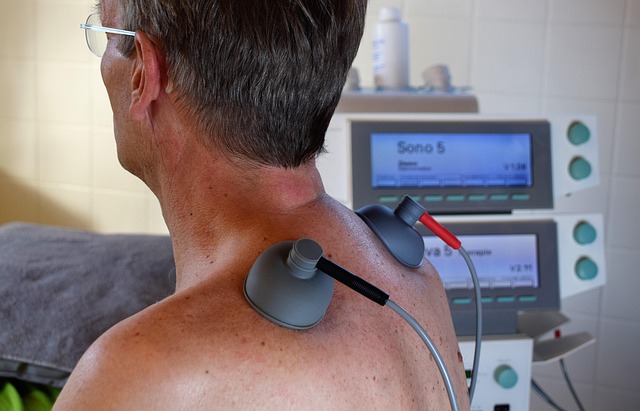Nighttime anxiety disrupts sleep and well-being. Float therapy for sleep enhancement offers a unique solution, promoting deep relaxation and reducing anxiety symptoms via sensory deprivation. Scientific studies confirm its effectiveness in lowering stress hormones, increasing melatonin, and improving sleep quality. Regular sessions enhance restfulness, reduce anxiety, and boost mental clarity. Optimize results with consistent scheduling, pre-session hydration and light meals, during-session breathing exercises, and post-session stretching.
“Experience profound relaxation and silence with float therapy, a game-changer in managing nighttime anxiety and enhancing sleep quality. This practice immerses you in a sensory-deprived environment, offering a unique way to quiet racing thoughts.
In this article, we explore the root of nighttime anxiety, its impact on sleep, and how float therapy provides a scientific solution for improved restfulness. We’ll guide you through the process, offer practical tips for incorporating sessions into your routine, and highlight the benefits of combining float therapy with healthy habits for optimal sleep enhancement.”
Understanding Nighttime Anxiety and Its Impact on Sleep
Many people experience nighttime anxiety, characterized by racing thoughts and heightened stress levels as they prepare for sleep. This condition can significantly impact overall sleep quality, leading to restless nights and daytime fatigue. The mind’s natural tendency to ruminate and worry during downtime is understandable, but it can create a vicious cycle, exacerbating existing anxiety disorders or contributing to the development of new ones. In today’s fast-paced world, finding effective solutions for calming the mind at night is essential for achieving restorative sleep.
Float therapy offers a unique approach to addressing nighttime anxiety and enhancing sleep. By immersing oneself in a serene, sensory-deprived environment, individuals can experience profound relaxation. This practice promotes a state of deep calm, allowing the mind and body to reset, which may help reduce anxiety symptoms and facilitate better sleep patterns. Float therapy for sleep enhancement has gained popularity as an alternative method to improve overall well-being and restore tranquility during those critical hours before bedtime.
What is Float Therapy? A Deep Dive into the Experience
Float therapy, also known as sensory deprivation therapy, is a unique and immersive experience designed to promote deep relaxation and enhance well-being. It involves lying in a sealed float tank filled with warm water enriched with Epsom salt, allowing the body to float effortlessly. This practice eliminates external sensory stimuli, creating a microenvironment that fosters tranquility.
During a typical session, individuals spend time in complete silence and darkness while buoyant in the water. The absence of visual and auditory cues triggers the brain’s relaxation response, slowing heart rate and reducing cortisol levels. This deep state of calm has been linked to improved sleep quality, making float therapy an emerging solution for those struggling with nighttime anxiety and racing thoughts that disrupt their slumber. By addressing these issues, it offers a promising approach to enhancing overall sleep enhancement.
Scientific Evidence: Float Therapy for Enhanced Restfulness
Float therapy, also known as sensory deprivation, has garnered significant attention for its potential benefits in enhancing restfulness and improving sleep quality. Scientific studies have explored its effects on the brain and nervous system, revealing promising outcomes. Research indicates that floating in a pod filled with warm salt water can reduce cortisol levels, often referred to as the stress hormone, which is known to disrupt sleep patterns when elevated.
Additionally, float therapy has been linked to increased production of melatonin, a hormone responsible for regulating sleep-wake cycles. This natural enhancement of melatonin levels contributes to deeper and more restorative sleep. Several studies have shown that regular float sessions can lead to improved overall restfulness, reduced anxiety, and better mental clarity during the day, all of which positively impact an individual’s ability to achieve and maintain sound sleep at night.
Practical Tips for Incorporating Float Sessions into Your Routine
Incorporating float sessions into your routine can significantly enhance your sleep quality, a key benefit of float therapy for sleep enhancement. To maximize the benefits, consider scheduling your floats consistently, perhaps once or twice a week, at a time that works best for your sleep cycle. Before your session, ensure you’re well-hydrated and avoid heavy meals, caffeine, and nicotine to enhance relaxation. During your float, focus on deep breathing exercises and clear your mind of racing thoughts. After the session, take time to stretch and slowly re-acclimate yourself to gravity before returning to your daily activities. This transition can help sustain the sense of calm achieved during floating.
Float therapy represents a promising, non-invasive approach to mitigate nighttime anxiety and promote better sleep quality. Backed by growing scientific evidence, this immersive experience offers a unique way to quiet racing thoughts and achieve profound relaxation. By integrating float sessions into their routines, individuals can enhance overall restfulness and improve their sleep patterns, ultimately fostering improved mental well-being.
